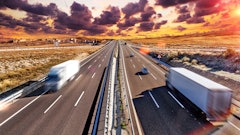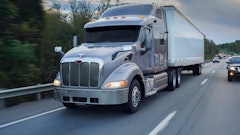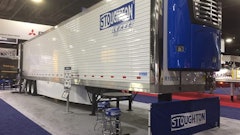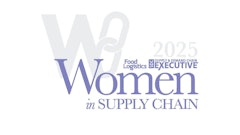London — December 22, 2008 — The rising volatility of oil prices and the consequent fuel surcharges applied by integrators such as DHL, TNT, UPS and FedEx, combined with the economic slowdown, has led to a gradual shift in customer demand within the European Union market away from express and parcel delivery services via air to alternatives such as road and rail, according to report from market analyst Datamonitor.
Datamonitor believes the European rail network not only serves the freight industry well but also is set to be penetrated by the express players as it provides a plausible alternative to the costly air express service.
Oil Price Volatility Sparks a Rethink
In view of the oil price volatility, global integrators like DHL, UPS, FedEx and TNT have been revising fuel surcharges, which shot up considerably in the months of May and June, only to be followed by slumps in more recent months. Consequently, customers and operators alike have witnessed uncertainty in express rates within the domestic and international air express segments.
Most of the express and parcel delivery companies are starting to see road and rail as viable alternative modes of transport because of the costs and service capabilities involved compared with air services. In the three mature markets of Germany, France and the U.K., express operators are increasing the use of the rail sector, especially in the international delivery services between European countries where trade flows are vibrant.
Express operators such as Time:Matters (Germany), DHL (U.K.), Business Post (Same Day) UK and Swiss Post are already offering express services through the rail network to serve same day and next day domestic delivery requirements. U.S. operator FedEx has plans to team up with the French rail network as high speed TGV trains running at 300 kmph (Eurocarex-Cargo Rail Express project) can prove to be both a viable solution for time definite deliveries and help reduce reliance on air networks for domestic and international deliveries within the E.U.
This is also expected to streamline critical overnight express deliveries, as rising noise levels due to nighttime deliveries in the airports continues to cause problems for residents in the surrounding airport area. Hence, nighttime deliveries via rail, which can serve to carry express freight along with parcels, are considered a more sustainable option as opposed to air.
Reemergence of Road and Rail
With the robust road infrastructure in the developed countries of Western Europe, road transport has reemerged as a cost effective method for the movement of packages in the intra-E.U. region and accounts for approximately 80 percent of the total express market value in the three developed markets of Germany, the U.K. and France. However, congestion charges in central London, Stockholm, Oslo and various other cities have made road transport on certain occasions costlier than rail. Additionally, rail transport makes environmental sense, as the emission levels are significantly lower than that of road.
Express door-to-door delivery utilizes intermodal transportation for both domestic and international segments. However, in the medium to long term, there is expected to be a shift favoring rail transport over road and air. Both express and railway companies, especially in the U.K., have realized the opportunity for intermodal delivery through rail networks. This trend is being further fuelled by targeted express delivery services being offered by private rail operators in Europe. For example, EWS (the U.K.'s rail logistics operator) already provides multi-user services (night deliveries) through its rail network to companies such as DHL and Business Post.
While some express companies see opportunities in rail express delivery, the urge to reduce logistics costs has pushed a few B2B companies to compromise on the time factor and even turn towards ocean-borne services. The developments in the ocean services sector now provide for day-definite services with date certainty for overseas trade and thus emerge as an indirect threat to intercontinental air express, says Datamonitor automotive and transportation logistics analyst Sraavani Rao.
"The express delivery market has witnessed a clear shift from air to road over the last few years as fuel surcharges and economic uncertainty became more problematic," Rao says. "An alternative mode of transport that offers great potential is rail, as most companies come to realize the potential of rail express delivery. This is expected to increase the share of rail in the modal mix of transport in the years to come and also provide opportunities for express companies to both compete effectively and satisfy shippers' requirements."
Datamonitor's "European Express Market Map 2009" report analyzes a sector worth over 39 billion euros. Detailing 12 major markets in Europe, the report maps value and volume of the express market, segmented by service level, destination and type of recipient, all forecasted to 2013.
Datamonitor believes the European rail network not only serves the freight industry well but also is set to be penetrated by the express players as it provides a plausible alternative to the costly air express service.
Oil Price Volatility Sparks a Rethink
In view of the oil price volatility, global integrators like DHL, UPS, FedEx and TNT have been revising fuel surcharges, which shot up considerably in the months of May and June, only to be followed by slumps in more recent months. Consequently, customers and operators alike have witnessed uncertainty in express rates within the domestic and international air express segments.
Most of the express and parcel delivery companies are starting to see road and rail as viable alternative modes of transport because of the costs and service capabilities involved compared with air services. In the three mature markets of Germany, France and the U.K., express operators are increasing the use of the rail sector, especially in the international delivery services between European countries where trade flows are vibrant.
Express operators such as Time:Matters (Germany), DHL (U.K.), Business Post (Same Day) UK and Swiss Post are already offering express services through the rail network to serve same day and next day domestic delivery requirements. U.S. operator FedEx has plans to team up with the French rail network as high speed TGV trains running at 300 kmph (Eurocarex-Cargo Rail Express project) can prove to be both a viable solution for time definite deliveries and help reduce reliance on air networks for domestic and international deliveries within the E.U.
This is also expected to streamline critical overnight express deliveries, as rising noise levels due to nighttime deliveries in the airports continues to cause problems for residents in the surrounding airport area. Hence, nighttime deliveries via rail, which can serve to carry express freight along with parcels, are considered a more sustainable option as opposed to air.
Reemergence of Road and Rail
With the robust road infrastructure in the developed countries of Western Europe, road transport has reemerged as a cost effective method for the movement of packages in the intra-E.U. region and accounts for approximately 80 percent of the total express market value in the three developed markets of Germany, the U.K. and France. However, congestion charges in central London, Stockholm, Oslo and various other cities have made road transport on certain occasions costlier than rail. Additionally, rail transport makes environmental sense, as the emission levels are significantly lower than that of road.
Express door-to-door delivery utilizes intermodal transportation for both domestic and international segments. However, in the medium to long term, there is expected to be a shift favoring rail transport over road and air. Both express and railway companies, especially in the U.K., have realized the opportunity for intermodal delivery through rail networks. This trend is being further fuelled by targeted express delivery services being offered by private rail operators in Europe. For example, EWS (the U.K.'s rail logistics operator) already provides multi-user services (night deliveries) through its rail network to companies such as DHL and Business Post.
While some express companies see opportunities in rail express delivery, the urge to reduce logistics costs has pushed a few B2B companies to compromise on the time factor and even turn towards ocean-borne services. The developments in the ocean services sector now provide for day-definite services with date certainty for overseas trade and thus emerge as an indirect threat to intercontinental air express, says Datamonitor automotive and transportation logistics analyst Sraavani Rao.
"The express delivery market has witnessed a clear shift from air to road over the last few years as fuel surcharges and economic uncertainty became more problematic," Rao says. "An alternative mode of transport that offers great potential is rail, as most companies come to realize the potential of rail express delivery. This is expected to increase the share of rail in the modal mix of transport in the years to come and also provide opportunities for express companies to both compete effectively and satisfy shippers' requirements."
Datamonitor's "European Express Market Map 2009" report analyzes a sector worth over 39 billion euros. Detailing 12 major markets in Europe, the report maps value and volume of the express market, segmented by service level, destination and type of recipient, all forecasted to 2013.

![Pros To Know 2026 [color]](https://img.sdcexec.com/mindful/acbm/workspaces/default/uploads/2025/08/prostoknow-2026-color.mduFvhpgMk.png?auto=format%2Ccompress&bg=fff&fill-color=fff&fit=fill&h=100&q=70&w=100)



![Pros To Know 2026 [color]](https://img.sdcexec.com/mindful/acbm/workspaces/default/uploads/2025/08/prostoknow-2026-color.mduFvhpgMk.png?ar=16%3A9&auto=format%2Ccompress&bg=fff&fill-color=fff&fit=fill&h=135&q=70&w=240)









